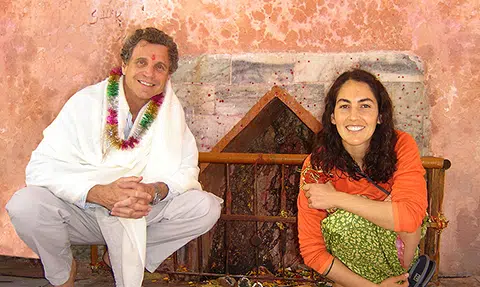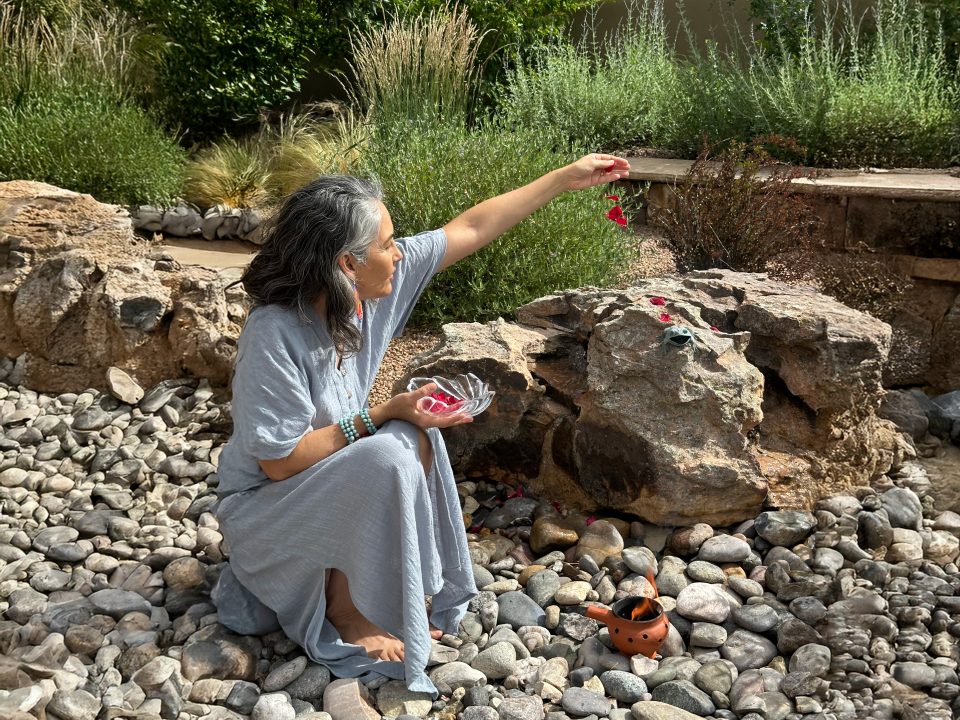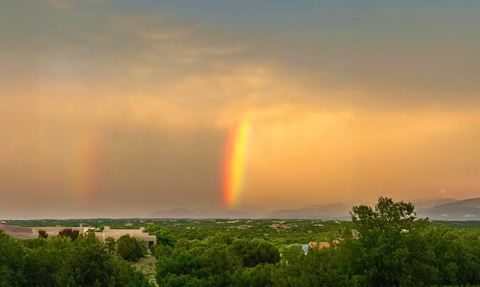
Being an Earth Keeper while traversing the Holiday season
December 30, 2024
What are your true motivations and needs?
January 13, 2025The Five Virtuous Principles: Where Andean Shamans meet the Yogis of the Himalayas.

When Alberto and I met twenty years ago, we shared a fascination for the practice of yoga. Soon, wanting to better understanding the most ancient text of this wisdom tradition, The Yoga Sutras of Patanjali, we set on a pilgrimage to its mother land: India.
We journeyed to remote places of worship like Gangotri and Yamunotri—the source of the Ganges river and Yamuna river, respectively. We rode on trains, on the roof of a jeep, and walked for miles on dirt trails by the head waters of the sacred rivers.
Not equipped for the cold and sleeping in very basic dwellings (showering with buckets of cold water), we were nonetheless infused by a vibrant sense of reality in its rawest form.
The vertical and snow-capped mountain peaks, the lush forest filled with the music of wildlife, and the yogis themselves, living in caves along the mountainside. It was an all revealing scenery of the wisdom of yoga: pure presence, pure being, pure witnessing, non-doing, infinity, and beyond…
One breath, then in awe, another breath.
Later, we met with the pundits, the wisdom keepers of the yogic tradition, to discuss the Sutras. And there it was, the yamas, the five virtuous principles of the practitioner:
- Non-violence — bring no harm to yourself or others.
- Truthfulness — be true to your word and let your word be true.
- Integrity — do not steal; walk your talk.
- Moderation — use wisely the life force within you.
- Generosity — give more than you take, for nothing in the world really belongs to you.
Alberto and I recognized these principles as the same we commit to in our path of the Munay-Ki, the Sacred Codes from the Andes. The only difference is that in the Quechua mountains, the teaching is an oral tradition still. Not much had been written about it.
Since our return from India in 2005, we have emphasized the five principles as the great vows of both, the yogi and the shaman. Non-violence, truthfulness, integrity, moderation, and generosity can help us enjoy a life free of drama.
How do you relate to these principles? Is there one in particular that speaks to you right now?
Marcela Lobos




